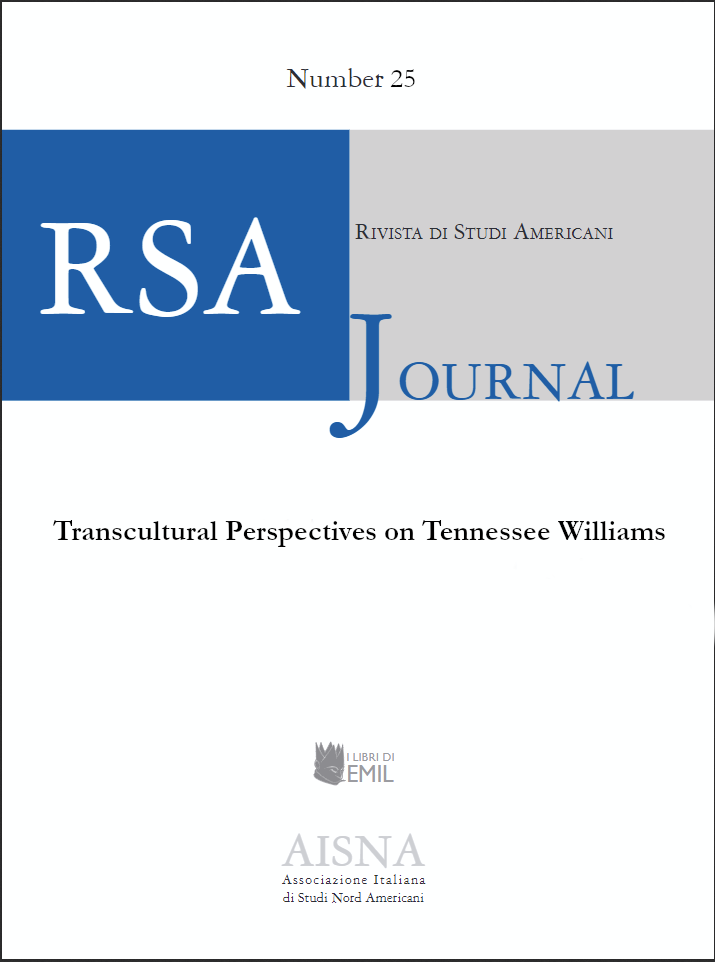Complicity Across the Atlantic
A Literary Liaison between Two Androgynous Artists
DOI:
https://doi.org/10.13135/1592-4467/8606Keywords:
androgynous, the Atlantic, artistic borrowingAbstract
Never anxious about artistic ‘borrowing,’ Tennessee Williams reputedly considered himself heir to this perennial practice as he lavishly ‘littered’ his own ‘original’ works with overt and covert references to literary luminaries from past and present. And yet, it is safe to state that much of his cultural renown is due to his unique artistic sensitivity. However, with one fellow artist this barefaced borrowing takes on a reciprocal turn – nurtured by a shared fascination with the mythological figure of Orpheus, an ambitious adaptation of Streetcar by one of them, an equally shared admiration by and fascination for the actress Tallulah Bankhead, and finally a conspicuous copying of significant chunks from The Eagle Has Two Heads by the other. Indeed, the artistic interactions between Tennessee Williams and the French paragon of modernism Jean Cocteau strike by their repeated returns. This essay therefore picks up where leading Williams scholar Gilbert Debusscher’s analysis about the impact of Cocteau’s Eagle on The Milk Train Doesn’t Stop Here Anymore left off thirty years ago. By both retracing the intricacies of their mutual influences while assessing the stylistic and semiotic means with which these came into being, it purports to present an analogy-based reassessment of the Williams-Cocteau interchange and of the so-called ‘problem of influence’ alike.
Downloads
Published
Issue
Section
License
RSAJournal applies a CC BY-NC-ND license to all its contributions. This license enables reusers to copy and distribute the material in any medium or format in unadapted form only, for noncommercial purposes only, and only so long as attribution is given to the creator. CC BY-NC-ND includes the following elements:
- BY: credit must be given to the creator.
- NC: Only noncommercial uses of the work are permitted.
- ND: No derivatives or adaptations of the work are permitted.
Authors who publish with this journal agree to the following terms:
- Authors retain the copyright and full publishing rights for their submissions to the journal.
- Authors grant the journal right of first publication with the work simultaneously licensed under a Creative Commons Attribution-NonCommercial-NoDerivatives 4.0 International License that allows others to share unedited work for non-commercial purposes with an acknowledgement of the work's authorship and initial publication in this journal.
- Authors are able to enter into separate, additional contractual arrangements for the non-exclusive distribution of the journal's published version of the work (e.g., post it to an institutional repository or publish it in a book), with an acknowledgement of its initial publication in this journal.




